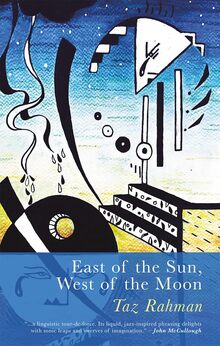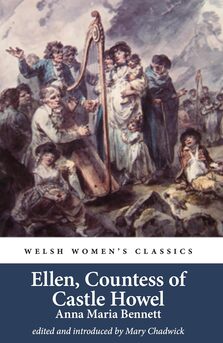What is Welsh Writing in English? The Scope of the Discipline
Friday 10 - Sunday 12 May 2024
Hybrid Conference – in person at Gregynog Hall, Newtown, Powys, and simultaneously online
The Thirty-Fourth Annual Conference
of the Association for Welsh Writing in English
Conference Fees
Full weekend delegate rate: £260
Reduced weekend delegate rate: £150 (student, unwaged and low waged)
One day + single night accommodation: £130 / £80
Zoom access: £10
Reduced weekend delegate rate: £150 (student, unwaged and low waged)
One day + single night accommodation: £130 / £80
Zoom access: £10
Conference programme
|
Please download the FINAL version (Version 6) of the conference programme...enjoy!
|
| ||||||
Saturday pre-dinner reception
Confirmed Creative Keynote: Taz Rahman
|
We're extremely excited to announce that our 2024 Creative Keynote is Seren poet Taz Rahman.
Taz's collection East of the Sun, West of the Moon was released earlier this year.
He is also the founder of the ground-breaking YouTube poetry channel 'Just Another Poet', the importance of which has been recognised through the award of Books Council of Wales New Audience Funding (2022/2023/2024) and a Literature Wales commission (2020).
For more about Taz, please take a look at his website.
|
Confirmed Keynote Speakers
We're delighted to announce our keynote speakers for the 2024 conference:
Professor Patrick McGuinness (St Anne's College, Oxford) will be our Friday evening keynote speaker
Professor Mary-Ann Constantine and Dr Elizabeth Edwards (Centre for Advanced Welsh and Celtic Studies, University of Wales Trinity Saint David) will be our Saturday keynote speakers. Their topic will be 'Thirteen Ways of Looking at Welsh Writing in English'.
Professor Patrick McGuinness (St Anne's College, Oxford) will be our Friday evening keynote speaker
Professor Mary-Ann Constantine and Dr Elizabeth Edwards (Centre for Advanced Welsh and Celtic Studies, University of Wales Trinity Saint David) will be our Saturday keynote speakers. Their topic will be 'Thirteen Ways of Looking at Welsh Writing in English'.
Confirmed Book-Launch
|
We're delighted to announce that the conference book launch will be for the Honno Classic, Anna Maria Bennett's Ellen, Countess of Castle Howel, edited and introduced by Dr Mary Chadwick.
The launch will take place at 5.30pm on the Friday of the conference, and we look forward to hearing from Dr Chadwick about the novel. We are grateful to the generosity of Honno for helping to support this event. |
Call for Papers
What is the scope of the discipline of Welsh writing in English? What are we working on? What should we be working on?
This broad call for papers asks for submissions which consider, or provide examples of, where and how scholars and creative practitioners are pushing at the boundaries of our approaches to and understandings of Welsh writing in English. Possible areas for consideration may include:
This broad call for papers asks for submissions which consider, or provide examples of, where and how scholars and creative practitioners are pushing at the boundaries of our approaches to and understandings of Welsh writing in English. Possible areas for consideration may include:
- How we understand innovation within the field, and where it is to be found.
- How creative practice is developing the field, particularly in terms of genre and form.
- How areas of scholarship and practice that are on the edges of Welsh writing in English study can be developed.
- Where the limits of the field can and/or should be.
- What theoretical work might be especially valuable in opening up the discussion of Welsh writing in English.
- Authors or groups of authors who have received insufficient scholarly attention to date.
- What innovations the study/practice of Welsh writing in English specifically might open up for literary studies more generally.
- Areas of scholarly or creative neglect within the traditions of Welsh writing in English.
- The relationship between scholarly/creative work in the field and the demands of public policy (e.g. the needs of the new Curriculum for Wales, or the Wellbeing of Future Generations Act).
The conference is open to both critical and creative proposals – and welcomes work which reflects on the field (or part of the field) or which demonstrates, in its own practice, ways of challenging or extending the study of Welsh writing in English.
Proposals may be from individuals (limited to 20 minutes), from pre-formed panels of three papers (90 minutes total) or for a round table discussion (90 minutes).
Proposals of no more than 250 words should be submitted by email to [email protected]
Proposals may be from individuals (limited to 20 minutes), from pre-formed panels of three papers (90 minutes total) or for a round table discussion (90 minutes).
Proposals of no more than 250 words should be submitted by email to [email protected]
Deadline
29 March 2024
Attendance is in person or via zoom (please indicate when submitting your proposal).
Attendance is in person or via zoom (please indicate when submitting your proposal).
Latest news and discussions
For all AWWE discussions, please use the hashtage #awwechat on Twitter.
Contact
To contact the AWWE Committee with any queries or suggestions, please email comm[email protected]



